World
Diabetes: Nigeria ranks 4th in consumption of soft drinks — Experts
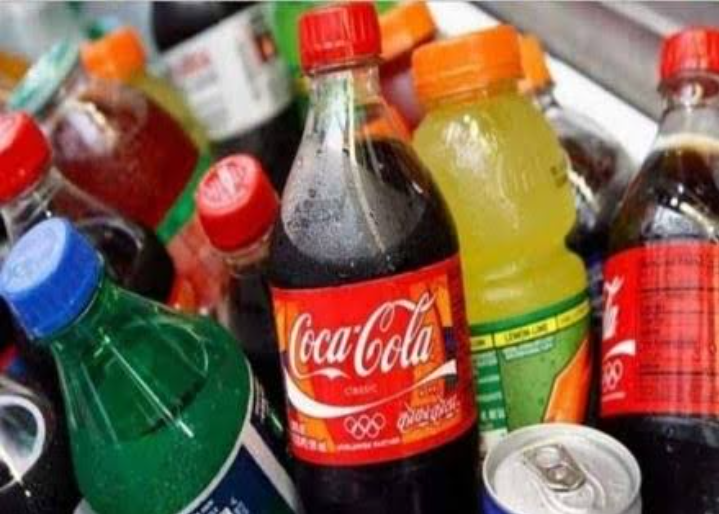
Experts have on Thursday, said Nigeria ranks 4th in the world for the highest consumers of Sugar Sweetened Beverages, SSBs, also known as soft drinks.
Executive Director, Project PINK BLUE, Runcie Chidebe, disclosed this during the global week of action for non-communicable diseases with the theme: “Invest in NCDs today, save lives and money tomorrow,” in Abuja.
Chidebe, represented by the Programme Coordinator, Project PINK BLUE, Gloria Okwu, said the World Health Organization, WHO, recommends that individuals take less than 10 cubes of sugar per day as a 35cl bottle contains as much as nine cubes of sugar.
She said, “Nigeria is the world’s 4th highest consumer of SSBs commonly known as soft drinks. An estimated 38.6 million litres of soft drinks are sold in Nigeria annually. Of particular concern is overconsumption among adolescents as indicated in a study where 97 percent of the 1,000 respondents consumed at least 35cl of soft drink daily. A 35cl bottle may contain as much as nine cubes of sugar, while the WHO recommends that individuals should take less than 10 cubes per day.”
She alluded that uncontrolled sugar intake could lead to other health conditions, like cancer, kidney diseases.
“People who consume one or two drink a day have a 26 percent chance of developing type 2 diabetes than people who rarely drink them. The consumption of Sugar Sweetened Beverages like soft drinks has been implicated in eleven cancers and there is strong evidence that being overweight or obese increases the risk of ten cancers: bowel (colorectal):
gallbladder, kidney, liver; oesophagus: ovary: pancreas, prostate (advanced): postmenopausal breast and womb (endometrial),” She stated.
Speaking in the same vein, Vice President, Nigerian Cancer Society, Comrade Elijah Elijah, said that in 2021, Nigeria accounted for 3.6 million diabetic patients, with those numbers expected to rise to 4.9 million by 2030.
World
Nigerian lady Clara Chizoba Kronborg certified as world record holder for longest interviewing marathon
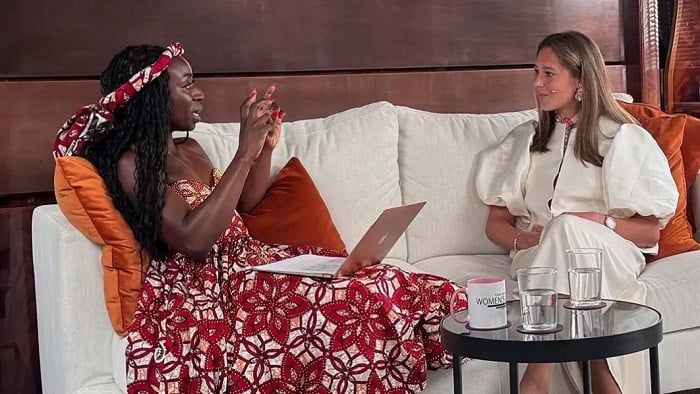
The Guinness World Records (GWR) has certified Clara Chizoba Kronborg, the Nigerian social media entrepreneur, as the holder of the longest interviewing marathon.
Kronborg broke the world record for the longest interviewing marathon with a time of 55 hours 24 seconds.
The Nigerian lady, who grew up in Onitsha, held the marathon between March 8 to 10 wherein she interviewed 90 people of various nationalities and occupations.
The conversations were centred on how each guest achieved success in their respective field.
Kronborg was permitted a five-minute break for each hour which she could use to take a nap, bath, or change her clothes.
Speaking about her motivations, Clara said she attempted the record because of her passion for success and to “amplify the voices of hardworking women using their stories to inspire others”.
“This record attempt was about bringing together diverse individuals, sharing their inspiring narratives, and forging meaningful connections on a global scale,” she said.
“I am committed to amplifying voices, particularly those of hardworking women, and using their stories to inspire others facing similar challenges.”
Clara revealed that one of her toughest challenges during the exercise was the pain she battled from her monthly flow.
“Even worse, my period started the same day, and I was already having intense menstrual cramps,” she added.
“At some point, I was literally dripping pee and period stain, but I persevered and kept my eyes on the goal. To anyone who ever reads this, once you find your purpose, go after it with everything you’ve got.
“Recalling everything I went through physically, mentally, financially, emotionally – it feels so unreal.
“I am extremely proud of this accomplishment because I know lives have been touched and changed.
“This achievement is dedicated to all those who dare to dream and persist, regardless of the challenges they face.”
In an official statement on Wednesday, the GWR certified Clara as the current world record holder.
The previous record was 37 hours 44 minutes by Rob Oliver (USA) in 2022.
In December, Amuda Mariam completed a 100-hour marathon to set a new record for the longest television talk show.
World
10 killed as two military helicopters collide in Malaysia
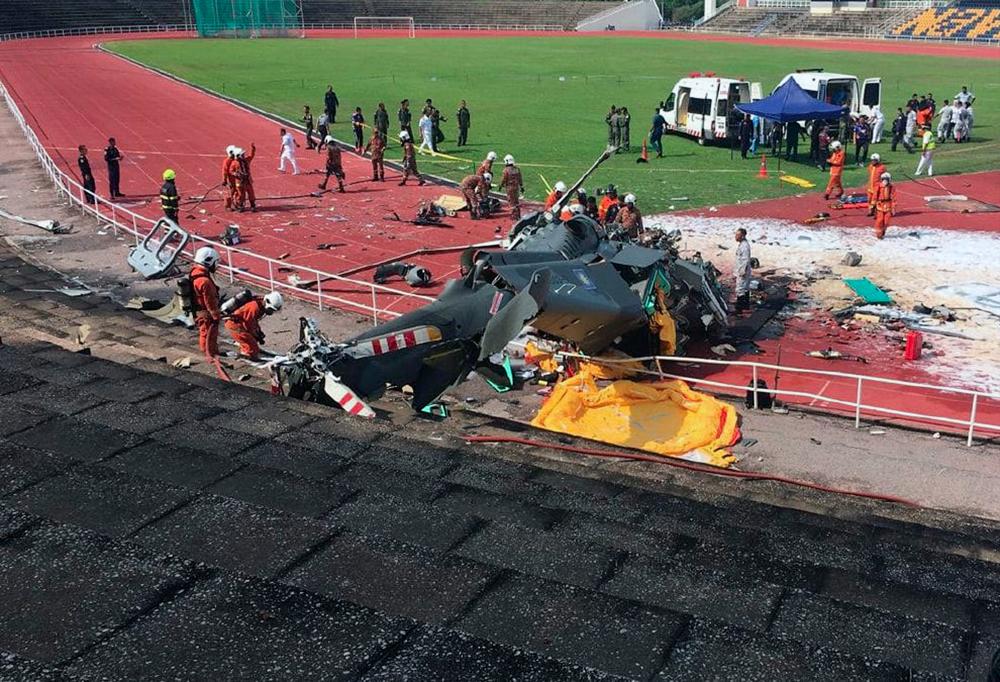
Two Malaysian military helicopters collided and crashed during a training session on Tuesday, killing all 10 crew onboard, the country’s rescue agency said.
Footage shared online showed several helicopters flying low in formation over the Lumut naval base, located about 160 kilometres (100 miles) from the capital Kuala Lumpur.
The helicopters were participating in a flypast rehearsal ahead of Naval Day celebrations in May.
One chopper was seen clipping the rear rotor of another, causing both to go into a tailspin and crash.
“The two helicopters collided during flight training,” said Suhaimy Mohamad Suhail, senior operations commander from the fire and rescue department, adding that all 10 crew members on board were confirmed dead by medical officers.
The two aircraft involved were a Eurocopter AS555SN Fennec and an AgustaWestland AW139, the rescue agency said.
Photos showed the Eurocopter model heavily mangled in the wreckage on the naval base stadium track with rescue personnel surrounding it as well as various debris.
The AgustaWestland helicopter crashed at the naval base’s swimming pool area.
Prime Minister Anwar Ibrahim sent his condolences to the families of the victims, saying “the nation mourns the heart-wrenching and soul-wrenching tragedy”.
“I was informed that an immediate investigation will be carried out by the Ministry of Defense, especially TLDM (Royal Malaysian Navy), to find the cause of the crash,” he said.
Malaysia’s King Sultan Ibrahim Sultan Iskandar also shared condolences.
Malaysia’s King Sultan Ibrahim Sultan Iskandar also shared condolences.
“Queen Zarith and I feel very sad over the loss of national heroes in this tragedy,” he said in a social media post.
World
Israel launches counterattack on Iran

Oil prices have surged by nearly 4 percent as Israel launched a missile attack on a target in Iran, according to international media reports.
Explosions were reported in Isfahan province in central Iran, where the country’s nuclear plant is located.
The International Atomic Energy Agency (IAEA) later announced that there was no damage to the plant.
Israel had promised a response to missile and drone attacks by Iran last weekend.
Iran had launched the attacks in response to the April 1 strike that killed its senior security officials at its embassy in Syria apparently carried out by Israel.
A US official told ABC News that Israel carried out a strike inside Iran, confirming reports of the explosion by the Asian country’s media.
There were also reports of blasts in Iraq and southern Syria.
Commercial flights we re-routed as parts of the Iranian airspace were closed.
Iran says it activated its air defence systems.
Israel is not planning further attacks and Iran is not going to retaliate either, according various officials quoted by the media.
Brent crude price is now over $90 per barrel, up from $87 before the strike.
-

 Entertainment1 week ago
Entertainment1 week agoJUST IN: Cubana Chief Priest pleads not guilty to naira abuse charge
-

 News2 days ago
News2 days agoFAAN reopens Lagos airport runway after Dana Air incident
-
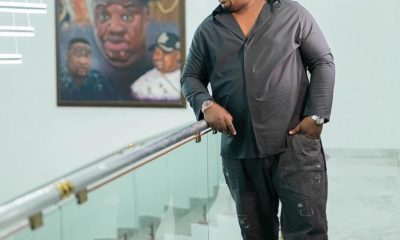
 Entertainment1 week ago
Entertainment1 week agoCubana Chief Priest arrives court for naira abuse trial
-

 Celebrities1 week ago
Celebrities1 week ago‘Not see you for 6 months, impossible’ — Davido reacts to Cubana Chief Priest’s bail
-

 Business1 week ago
Business1 week agoElon Musk threatens to suspend X accounts doing engagement farming
-

 World1 week ago
World1 week agoDubai international airport cancels flights as flood ravages runway, UAE
-
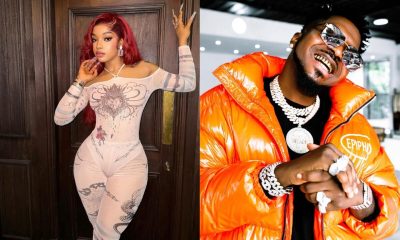
 Celebrities1 week ago
Celebrities1 week agoNickie Dabarbie calls out Skiibii for attempting to use her for money rituals (Video)
-
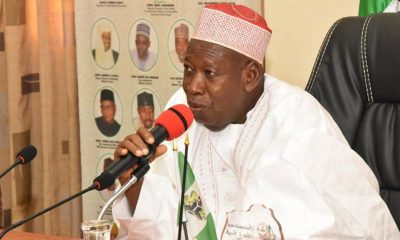
 Politics1 week ago
Politics1 week agoKano court upholds Ganduje’s suspension from APC


















